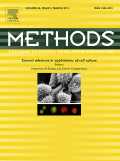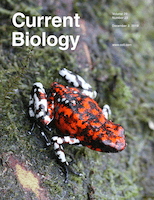
Bio-protocol
Scope & Guideline
Unlocking the future of biochemistry and beyond.
Introduction
Aims and Scopes
- Comprehensive Protocol Sharing:
The journal focuses on publishing detailed and replicable experimental protocols across various biological disciplines, ensuring that researchers have access to methodologies that can enhance reproducibility in scientific research. - Interdisciplinary Approach:
Bio-protocol encourages contributions from diverse areas of biology, including molecular biology, microbiology, plant biology, and neuroscience, allowing for a rich interchange of techniques and ideas across fields. - Emphasis on Methodological Rigor:
Each protocol published in the journal is subjected to rigorous peer review, emphasizing the need for clarity, precision, and methodological soundness, which is crucial for experimental reproducibility. - Innovative Techniques and Technologies:
The journal is a platform for introducing new experimental techniques and technologies, providing researchers with cutting-edge methodologies that can be implemented in their work. - Educational Resource:
By offering clear and structured protocols, Bio-protocol serves as an educational resource for both novice and experienced researchers, facilitating skill development in experimental techniques.
Trending and Emerging
- CRISPR and Genome Editing:
The rise of CRISPR technology has led to an increase in protocols related to genome editing, showcasing the demand for precise genetic modifications in various organisms, which is revolutionizing genetic research. - Organoid and 3D Culture Systems:
There is a growing trend towards the use of organoids and 3D culture systems that mimic in vivo environments, allowing for better modeling of human diseases and drug responses. - Single-Cell Analysis Techniques:
Protocols focusing on single-cell analysis are emerging as essential tools for understanding cellular heterogeneity and dynamics, particularly in cancer and developmental biology. - Optogenetics and Imaging Techniques:
The integration of optogenetic tools and advanced imaging methods is trending, enabling researchers to manipulate and visualize cellular processes in real-time with high precision. - Microfluidics in Biological Research:
Microfluidic technologies are gaining attention for their ability to miniaturize experiments and allow for high-throughput analysis, providing innovative solutions for studying cellular interactions and responses.
Declining or Waning
- Traditional Molecular Cloning Techniques:
As newer, more efficient methods such as CRISPR and other genome-editing technologies gain popularity, traditional molecular cloning protocols have seen a decline in publication frequency. - Basic Cell Culture Techniques:
With the rise of more complex in vitro models, such as organoids and 3D cultures, the focus on basic cell culture techniques has diminished, as researchers seek more physiologically relevant systems. - Animal Models in Basic Research:
There is a noticeable shift away from classic animal models in favor of alternative methods, including organ-on-a-chip systems and in vitro models that reduce the reliance on animal testing. - Fluorescent Protein Tagging:
While still relevant, the frequency of protocols focused solely on fluorescent protein tagging has decreased as researchers are increasingly integrating more sophisticated imaging techniques and multi-labeling approaches. - In vitro Assays for Simple Drug Testing:
Protocols centered on basic in vitro drug testing without mechanistic insights or complex modeling are becoming less common, as the field moves towards more integrative approaches that include multi-target interactions.
Similar Journals

Applications in Plant Sciences
Inspiring the Next Generation of Plant ScientistsApplications in Plant Sciences is a prestigious journal published by WILEY, dedicated to advancing the field of plant science and ecology through original research and comprehensive reviews. With an impressive impact factor that places it in the Q1 category in both Ecology, Evolution, Behavior and Systematics, and Plant Science, the journal stands as a pivotal resource for scholars and practitioners. Since its establishment in 2013, it has embraced an Open Access model, ensuring that vital research is accessible to a global audience. The journal’s rigorous peer-review process and its commitment to high-quality content make it a leading platform for disseminating relevant findings, innovative methodologies, and cutting-edge technologies. Recognized in the Scopus rankings among the top percentile of journals, Applications in Plant Sciences continues to foster collaboration and inspire further studies that address the challenges and opportunities in plant biology. Researchers, students, and professionals alike will find this journal indispensable in keeping abreast of advancements and engaging with the forefront of plant science research.

AMERICAN JOURNAL OF BOTANY
Connecting Scholars to the Heart of Botanical ScienceAmerican Journal of Botany, an esteemed publication by Wiley, serves as a pivotal platform for the dissemination of groundbreaking research in the fields of botany, ecology, plant science, and genetics. With an illustrious history dating back to 1946, this journal holds a prestigious position in the academic community, evident through its Q1 ranking in both Ecology, Evolution, Behavior and Systematics and Plant Science, alongside a Q2 ranking in Genetics as of 2023. The journal maintains a competitive edge, ranked 159th in Ecology and Evolution and 124th in Plant Science according to Scopus metrics, underscoring its impact within the research landscape. Though traditionally not an open-access journal, it continues to provide valuable insights and advancements in botanical science, making it essential reading for researchers, professionals, and students dedicated to understanding and exploring the complexities of plant life. The journal's commitment to high-quality research ensures that it remains a cornerstone in the pursuit of knowledge in botany and related disciplines.

METHODS
Exploring the forefront of research techniques.METHODS is a premier journal published by Academic Press Inc Elsevier Science, dedicated to advancing the field of Biochemistry, Genetics, and Molecular Biology. With an ISSN of 1046-2023 and E-ISSN 1095-9130, this distinguished journal has established itself as a vital resource since its inception in 1990, providing high-quality research articles and methodological insights crucial for both seasoned researchers and students alike. The journal ranks in the Q1 category for miscellaneous areas within Biochemistry and Genetics, and maintains a Q2 ranking in Molecular Biology, reflecting its impact within the scientific community, evidenced by Scopus rankings that place it in the top 20% of its field. METHODS offers a platform for showcasing innovative research methods and their applications, contributing significantly to the development of new technologies and analytical techniques. Though not an open-access journal, it remains a highly regarded publication that assures readers of rigorous peer review and academic integrity, making it an essential addition to any serious researcher's library.

CURRENT BIOLOGY
Unveiling the Future of Biology, One Study at a TimeCURRENT BIOLOGY is a premier academic journal published by CELL PRESS, dedicated to a broad spectrum of fields within biological sciences. With an ISSN of 0960-9822 and E-ISSN 1879-0445, the journal has established itself as a vital resource for groundbreaking research and advancements since its inception in 1991. CURRENT BIOLOGY boasts high prominence in its categories, securing a Q1 quartile ranking in Agricultural and Biological Sciences, Biochemistry, Genetics and Molecular Biology, and Neuroscience, indicating its significant impact and relevance in these fields. Notably, it ranks #9 out of 221 journals in Agricultural and Biological Sciences, placing it in the 96th percentile, while also maintaining a strong presence in the Biochemistry category with a rank of #26. Researchers and professionals can rely on CURRENT BIOLOGY for comprehensive reviews, innovative methodologies, and crucial scientific developments that bridge theoretical knowledge with practical applications. The journal continues to play an essential role in enhancing the global dialogue in biological research, making it indispensable for students, academics, and industry experts aiming to stay at the forefront of the rapidly evolving landscape of life sciences.

STAR Protocols
Transforming Ideas into Actionable ProtocolsSTAR Protocols, published by Elsevier, is an esteemed open access journal that has been at the forefront of providing innovative experimental protocols since its inception in 2020. With a distinct focus on a range of scientific disciplines including Biochemistry, Genetics and Molecular Biology, Immunology and Microbiology, and Neuroscience, this journal serves as a vital resource for researchers, professionals, and students alike. The journal holds a commendable status, reflected by its Q1 and Q2 rankings across various relevant categories, ensuring the dissemination of high-impact research methods and findings. With its open access format, STAR Protocols encourages a broad readership and facilitates the sharing of pivotal knowledge in the scientific community, driving forward the culture of transparency and collaboration in research. Positioned in the vibrant academic landscape of the United States, it steadily contributes to the evolution of experimental methodologies, fostering innovation across disciplines.

Uchenye Zapiski Kazanskogo Universiteta-Seriya Estestvennye Nauki
Empowering Research Through Open AccessUchenye Zapiski Kazanskogo Universiteta-Seriya Estestvennye Nauki, a distinguished open-access journal published by Kazan Federal University, serves as a crucial platform for disseminating cutting-edge research across a spectrum of disciplines including Agricultural and Biological Sciences, Biochemistry, Genetics and Molecular Biology, Chemistry, and Earth and Planetary Sciences. With its ISSN 2542-064X and E-ISSN 2500-218X, this journal has been committed to fostering scientific discourse since it became open access in 2011. Located in the Russian Federation, the journal is dedicated to embracing a global audience, inviting contributions that push the boundaries of knowledge and innovation. Despite its current categorization in the Q4 quartile across various fields, the journal provides a valuable opportunity for researchers and scholars to engage with emerging scientific developments and to contribute to knowledge advancement. As part of its vision, Uchenye Zapiski aims to elevate the standards of research publishing and create a robust forum for dialog and collaboration among academics and industry professionals alike.

PLOS BIOLOGY
Advancing Biological Knowledge for a Global AudiencePLOS BIOLOGY, published by PUBLIC LIBRARY SCIENCE, is a leading open-access journal that has been at the forefront of biological research since its inception in 2003. This high-impact journal (with an impressive Scopus ranking placing it in the top 10% across multiple biological disciplines) aims to disseminate groundbreaking research findings in a variety of fields, including Biochemistry, Genetics, Molecular Biology, Immunology, Microbiology, and Neuroscience. With a commitment to open-access principles, PLOS BIOLOGY ensures that its content is freely available to a global audience, fostering collaboration and innovation among researchers, professionals, and students worldwide. Its Q1 quartile status in 2023 highlights the journal's prestigious standing within the academic community, making it an essential resource for those seeking to stay updated with the latest advancements in biological sciences. The journal's scope extends from 2003 to 2024, reflecting its sustained relevance and impact in driving forward biological discoveries.

Applied Biological Research
Shaping the Future of Biology Through Rigorous ResearchApplied Biological Research is a dynamic journal issued by the CENTRE ADVANCEMENT APPLIED SCIENCES, specializing in the interdisciplinary fields of biochemistry, genetics, and molecular biology. With its ISSN 0972-0979 and E-ISSN 0974-4517, this journal serves as a critical platform for the dissemination of peer-reviewed research that addresses pressing challenges and innovations within biological sciences. Although currently it does not adopt an Open Access model, it is dedicated to fostering academic discourse through rigorous publication practices. The journal's impact is underscored by its Scopus rankings, which place it in the 4th and 2nd percentiles in respective categories, emphasizing its emerging influence in the scientific community. Covering research from 2020 to 2024, Applied Biological Research is positioned as an essential read for researchers, professionals, and students seeking to stay at the forefront of biological research and application. Based in the beautiful region of Jammu & Kashmir, India, this journal is committed to advancing applied sciences through innovative research and outreach.

ACS Central Science
Transforming Ideas into Impactful DiscoveriesACS Central Science is a prestigious, peer-reviewed journal published by the American Chemical Society, focusing on innovative research across the diverse landscape of chemistry and chemical engineering. Established in 2015 as an Open Access platform, it has rapidly risen in prominence, achieving a remarkable Q1 ranking in both Chemical Engineering and Chemistry fields, with an impressive Scopus percentile of 98th and 96th respectively. This journal serves as a vital resource for researchers, professionals, and students seeking to disseminate and access cutting-edge advancements in these disciplines. By removing the barriers to access, ACS Central Science promotes the exchange of ideas and fosters collaborative research, ensuring that high-quality, impactful findings are available to all. With its clean and modern online interface, accessible from the heart of Washington, DC, the journal continues to attract leading scholars while influencing the trajectory of chemical sciences well into the future.

Methods and Protocols
Bridging the gap between research and real-world applications.Methods and Protocols is a prestigious open-access journal published by MDPI, focusing on the critical domain of biochemistry, genetics, molecular biology, and biotechnology. Launched in 2018 and based in Basel, Switzerland, the journal provides a vital platform for sharing innovative methodologies and experimental protocols that advance scientific research and development. With an impressive Q2 ranking in multiple categories, including Biochemistry, Genetics and Molecular Biology, and Biotechnology, it fosters a collaborative environment for researchers and professionals to disseminate their findings. With a mission to enhance reproducibility and transparency in scientific inquiry, Methods and Protocols not only serves as an essential resource for academia but also contributes to the practical application of research in various industries. The journal's open-access model ensures that cutting-edge research is accessible to a global audience, thus promoting knowledge sharing and inspiring future innovations within the scientific community.